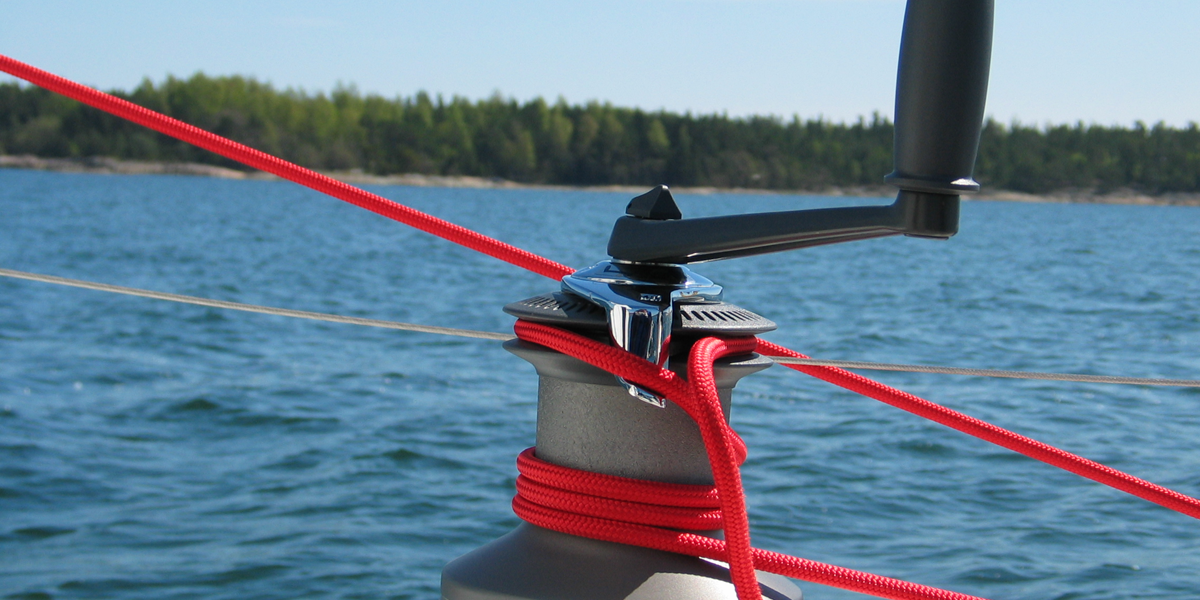To set sail safely, boats intended for fishing require certain tools and supplies to be stored onboard. From marine winches to anchors, our team at Atlas Winch Hire & Hoist Services has curated a list of must-haves for your fishing boat. This article will guide you through the supplies you will need to stay safe and fish effectively while out at sea.
Safety Equipment
The sea can be highly dangerous, exposing sailors to large waves, strong currents and sudden storms. In the event of an emergency and during daily operations, it’s important to have safety gear to hand that can reduce the risk of both injuries and fatalities while on board. Here, you can learn about some key safety equipment that every fishing boat needs.
Lifejackets
An undisputed essential of any boat is lifejackets. Designed to increase buoyancy and keep the user afloat, even if they are unconscious or cannot swim, a lifejacket will significantly increase a person’s chances of survival if they find themselves overboard. Additionally, lifejackets are typically brightly coloured and reflective, making it easier for rescue boats to spot someone who is overboard. While waiting to be rescued, lifejackets can also help a person retain body heat and prevent hypothermia.
First Aid Kit
When working with heavy machinery on strong currents, there’s a chance of accidents causing injuries to those onboard. To patch up cuts and grazes or to clean a wound properly, you will need a first aid kit. Designed to be waterproof, boating first aid kits are equipped to resist water damage, making them perfect for use while on the open waters.
Distress Signals
In the event of an emergency with your boat, you will need a way to ask for help effectively. Visual distress signals are often used aboard a boat, helping to make the location of a water vessel clear in the event of an emergency. Flares, for example, can produce bright lights or smoke signals that are easily viewed from a distance and help rescue boats to determine where help is needed.
In addition to visual distress signals, many boats are equipped with radio signals that can be used to communicate with other boats and rescuers. Implementing these radio signals can allow you to contact rescue boats that are based further away from your ship. Emergency Position-Indicating Radio Beacons (EPIRBs), for example, transmit a distress signal on a frequency that can be detected by satellites, alerting search and rescue teams to your call for help.
Other common types of distress signals include:
- Whistles
- Foghorns
- Mirror signals
- Dye markers
Fire Extinguisher
While you might not immediately see a fire as a concern in the middle of the sea, fires can and do happen aboard boats. From electrical fires to those involving flammable liquids, it’s often unsafe to use ocean water to put out flames. Instead, you should choose fire extinguishers that are designed to put out a specific fire type. So, before setting sail, make sure you have the right fire extinguishers.
Navigation Tools
Once you know you can travel safely, you will need to know where you’re headed. Navigation tools can help you reach the right fishing spots, while also preventing you from getting lost and unable to return to shore. Below, find the navigation tools you need.
Maps and Charts
To make sure you’re always sailing in the right direction and able to easily find your destination, you will need a type of map in your boat. Specific fishing maps and charts are often handy, as these can provide exact locations for different types of sea life. While electronic maps are fantastic for making navigation simpler aboard a boat, it’s still a good idea to make sure you have physical maps on hand that can help you get back to shore in an emergency.
Compass
A compass can prevent you from getting lost, by helping you discover where you are currently headed. When paired with a map, a compass can help you discover whether you are still headed to your destination.
Mooring Equipment
As the water knocks against your boat as it flows, often this can encourage it to steadily move. Without a way to secure your location, your boat can be easily moved away from the spot it needs to be for effective fishing. Similarly, at the shore, you will need to secure your boat to ensure it doesn’t leave with the tide and become unreachable to you.
Mooring equipment is a must-have, making it easy for sailors to keep their boats in the right position. From anchors to buoys, there are several ways of securing a boat in one place. Mooring equipment comes in a wide variety of forms, which makes it easy to find a solution that works best for your size boat and your securing requirements.
Toolkit
Another essential type of navigation equipment to keep on your boat is a toolkit. While a toolkit might not help you navigate as such, it can help ensure your navigation tools and mooring equipment are functional and fixable should something go wrong. Keeping simple tools in hand can help you fix minor problems without the need to return to shore, which is great for long fishing trips and overnight travels.
Your boat’s toolkit should include:
- Screwdrivers
- Wrenches
- A utility knife
- Duct tape
- Zip ties
- Wire cutters
- Torches
- Pliers
Fishing Gear
Arguably the most important equipment on a fishing boat is the fishing gear itself. Designed to make fishing easy for those onboard, modern fishing gear comes in a wide variety of forms that can be tailored specifically to boats. From baits to nets, discover the fishing gear you might choose to implement on your boat.
Lures and Bait
To catch fish properly, you will need lures and bait. Designed specifically to attract different species and types of fish, modern lures and baits are perfect for helping to trap sea life. The type you will need often depends on the specific fish you would like to catch, so make sure you speak to professional bait suppliers if you’re unsure of which may work best.
Fishing Rods and Nets
To catch large amounts of fish, you will likely need a fishing net aboard your boat. This is especially true for species that tend to school, such as mackerel or herring. On the other hand, for pleasure fishing, where the goal is to enjoy the experience and catch only a few fish, a simple rod and reel will usually suffice. You can also consider using a small landing net to safely bring in your catch.
Bailer
Water can easily spill over into a boat, creating a soggy surface for you and your staff to work on. To remove this water and make the space safer, you will need a water bailer. A water bailer can be used to effectively remove any excess water from your boat’s deck and back into the ocean. These tools come in manual and automatic varieties, allowing you to choose a solution that best suits your needs and your budget.
Winches
Winches are incredibly useful and can be designed specifically for fishing purposes. A winch can effectively lift large amounts of caught fish upwards, without the need for manual labour. This can reduce strain on fishermen, preventing them from needing to lift heavy nets upwards themselves. Lifting gear for boats is sold in a wide range of sizes and capacities, so it’s easy to find an option that will suit your boat and its size.
Comfort and Convenience Supplies
Often easy to overlook, it’s essential not to forget the supplies on your boat that will keep you comfortable and happy while out at sea. Read on to find three essential things to supply yourself and your crew members with.
Sun Protection
When working outside on a boat’s deck, often people are exposed to a large quantity of sunlight. To protect the skin from painful and dangerous sunburns, they need to use high-quality sun protection. Suncream is a great option, particularly when paired with coverings such as hats and long clothing.
It’s important to note that any suncream you choose to use should also be waterproof, as spray from the sea may reduce the efficacy of non-waterproof solutions. Make sure to reapply your sun protection regularly for proper coverage.
Food and Water
To prevent dehydration and hunger, it’s incredibly important to keep a supply of food and water to hand while you’re onboard. Even for short trips, a supply of both food and water can make sure you and your crew members are happy and healthy while out at sea. Plus, a supply of food and water is incredibly useful in emergencies, where you might feel unsure of when you will be able to return to land.
Extra Clothes
While waders and other protective clothing can protect you from getting too soggy, it’s hard to completely avoid water drenching your clothing while at sea. Working and travelling in wet clothes can be highly uncomfortable, so it can be helpful to have a supply of spare clean clothes aboard your boat before you set sail.
Marine Equipment Supplies Across the UK
As experts in marine equipment, Atlas Winch Hire & Hoist Services can keep you supplied with the tools you need most when you’re out sailing. From mooring equipment to electric winch machines, we can support you whether you’re sailing for business or pleasure. Please visit our website to discover more about us and our services here at Atlas Winch Hire & Hoist Services. Here, you can explore our range of products, both new and used. Alternatively, for further support or a quote on a product, please get in touch with us directly today.








